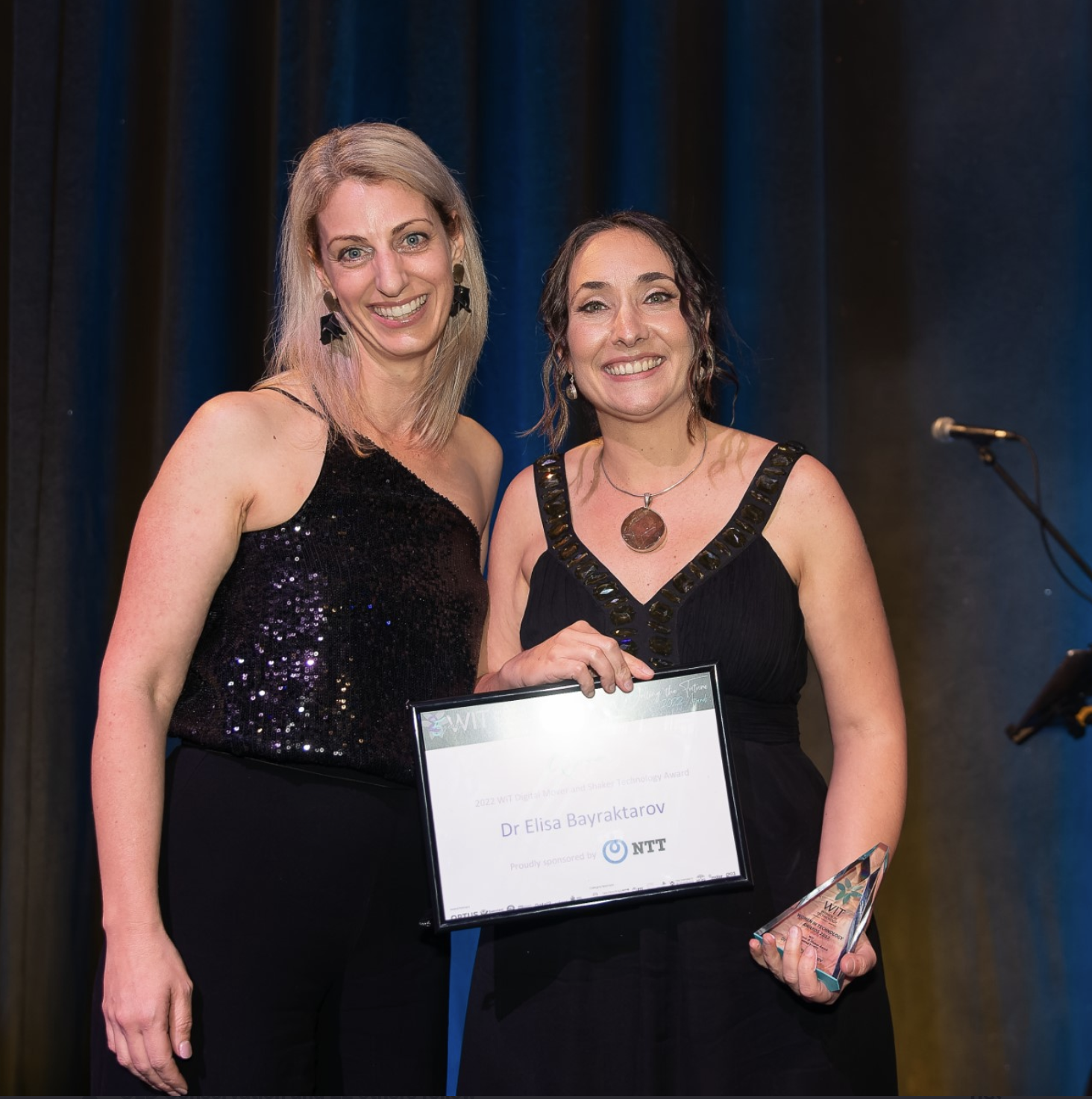Overcoming imposter feelings for women in technology/science
Imposter syndrome or imposter phenomenon is defined as the feeling of inadequacy or feeling like a fraud for holding a given professional role despite evident success and many achievements in that role or the previous ones. People who struggle with imposter feelings are often high-achieving individuals who develop chronic self-doubt and the feeling of intellectual fraudulence which override any sense of success or acknowledgement of their accomplishments. The phenomenon is linked to perfectionisms especially in women and amongst academics. Imposter feelings can also develop environmentally where the work culture predominantly supports White or Male leadership. Lack of support in a work environment (e.g., male-dominated IT sector) can easily lead a marginalised high performer (e.g., a woman in tech) to develop the feeling of self-doubt and lack of belonging in this work culture. In this blog post, I dissect many of the common recommendations on how to overcome imposter syndrome, apply this to the women in technology scenario and summarise what has worked for me vs what didn’t by telling my own story on how I’ve been combatting imposter syndrome. I hope this blog will lift other women in tech struggling with the feeling of self-doubt and inadequacy in their male-dominated environment up by sharing my lessons learned.
Let’s get personal with my imposter syndrome
I was born in and spent the first eight years of my life in Bulgaria. As a girl in an Eastern Bloc, socialist society, I didn’t feel I could be anything I wanted. Instead, I would have to be what the party wanted me to be.
In 1989, everything changed. My father took a job in West Germany, and we moved there just before the fall of the Berlin Wall. The first years of living in the Western world as someone from a developing country were rough. I had to become fluent in German within 6 months, so I could defend myself from the bullying and names being thrown at me. Kids can be so cruel some time. One thing that was going well was maths – I realised that kids from the Eastern Bloc were at least a year or two ahead of German kids in mathematics. This was one of my first experiences that I remember where I could combat the feeling of inadequacy with academic achievements.
Growing up, I managed to put myself in more situations that made me feel like an imposter than I can remember. Those situations were often triggered by too high aspirational goals such as the desire to become an astronaut or somewhat more achievable, the study of the most complicated STEM subject: Biophysics – the physics of living systems.
Other situations came from making professional decisions that were physically challenging such as to become a scientific diver. Working as a research diver may look like quite an adventure – of course you go to the most amazing places of the world like the Greek volcanic islands, the Arctic, the Caribbean, the Great Barrier Reef. And while glorified externally, I doubt that too many people knew that I was packing and repacking and counting my equipment and measurement devices over and over again because I was afraid that I wasn’t well enough prepared for the next field trip of my PhD, often until the early morning hours. Sometimes, I’d fall asleep on a bumpy boat drive back from a field trip because I was only sleeping for 2-3 hrs.

How can this Superdiver possibly have an imposter feeling?
Probably the biggest source for my imposter feeling was the frequent change in jobs and scientific fields. Academic life is hard. Trying to establish yourself as a researcher requires you to accept all the uncertainty of short-term jobs and not knowing whether your next research grant proposal will be successful. Most fail. Some few ones succeed. You better embrace uncertainty as there’s only one constant in life and that’s: change. Stumbling from job to job, from grant to research assistant role, I changed from biophysics to marine microbiology, from coral reef ecology to marine coastal restoration, from threatened species biodiversity indicators to management of research software for the environment. And every time you change jobs you feel like:
Check out this gif on the dog in space
Of course, that’s your friend ‘the imposter syndrome’ talking. So, what do you end up doing – you work crazy long hours triggered by the fear that someone, somewhere could discover that you may be a fraud. But let me tell you as a friend – that’s not true at all!
Last year, I had the worst experience of self-doubt and imposter syndrome. One of my mentors suggested I should apply for one of the Women in Technology awards which usually require professionals to nominate you. As it happens, one out of 8 people I’ve asked chose not to support my application with a nomination – partly because they didn’t know me and partly because the digital innovation product that I was working on with my team wasn’t released just yet. Despite having the support from 7 Directors, Scientists and national Leaders, my imposter syndrome decided to make itself a home in this one single rejection. Funny enough, upon applying, the judges invited me to an interview and shortly after, I received the notification that I was a finalist. In September 2022, at the big Gala event, I was awarded the Women in Technology “Digital Mover and Shaker” Award acknowledging my leading-edge contributions at the interface of science, tech and innovation over the last 6 years. I was glad, I did not allow this one person to stop me!

Photo credits: Paul Neil Photography
Reception of the “Digital Mover and Shaker Award” by the Women in Technology organisation and NTT at Gala event on 16th of September 2022.
Is there a cure for imposter syndrome?
The answer is no, there’s no such thing as a cure for imposter syndrome. But one thing that I could tell you for sure is that it’s very unlikely that you’re an imposter. Real imposters don’t even consider the slightest feeling of self-doubt. That’s not you!
 Source: ProgrammerHumor
Source: ProgrammerHumor
But you can learn to manage your imposter syndrome. Over the years, I’ve learned a couple of helpful ways to manage the chronic feeling of self-doubt and inadequacy. Most of the strategies are based around gathering and compiling as much evidence as possible to validate and remind yourself about your achievements and accolades. Here’s a few things that have worked for me:
1. Collect evidence on your achievements – start your “Book of Winning”
The best strategy to combat imposter syndrome has been to reflect on your professional career achievements and remind yourself of your own value in the professional world. It takes many years of hardship, discipline, blood, sweat and tears to study a STEM subject, write a thesis or defend your doctorate. My personal trick is to maintain a “Book of Winning”. My Book of Winning is an A4 book with blank pages which I use to stick evidence on big but also little successes professionally and personally. I print out news on winning awards, articles about my research, interviews I’ve given, events I’ve held, speakers’ fora but also small things like a positive email from a mentor or feedback from a happy stakeholder. Every time I feel unsure and inadequate, I take some time to look through this book, page by page, and to remind myself of my achievements and the value I bring to the table.

Pictures of my personal “Book of Winning” with a few snippets that I’m yet to glue in.
2. Share your feelings with trusted individuals
Reflect whether you can identify some trusted individuals who you could talk to if you feel that you can’t trust your own judgement. Ask them for feedback about your strengths and how they would describe your achievements in your present role. Be very careful who you choose to be vulnerable to as sometimes sharing your feelings with peers who also struggle with imposter syndrome could promote competitiveness and make things worse. If you are unsure about trusted individuals, consider paying an expert to help you navigate the imposter feeling and equip you with tools to combat it. I personally have benefitted a lot from getting an excellent psychologist to support me understand why I feel the way I do sometimes. Remember, seeing a psychologist doesn’t mean something is wrong with you. I am a strong believer that everyone would benefit from some professional life couching and someone to help you clean up and tidy the chaos that’s sometimes in our heads and feelings. Of course, you can talk to your partner or friends but often talking to a professional gives you a completely different and fresh perspective on how to navigate a difficult situation.
3. Learn, grown and upskill
Actively seek opportunities for professional training and consider investing in your professional growth at your own expenses in case you don’t belong to an organisation that would pay for professional training. There’s nothing more inspiring than to undergo a training run by an empowering community to lift you up and validate your professional value. I have recently enrolled in several trainings by the Women in Technology Organisation, e.g., a training on board readiness and a training for culturally and linguistically diverse women in tech. Each time, I’ve felt inspired, empowered, and could add some amazing professional superstar women to expand my network. Network is crucial for your professional advancement.
4. Celebrate all success – no matter how small
Every little win counts – add them to your long list of successes, no matter how small. Whether it’s a paper you co-authored that just got published or you received an email from a colleague who found your research helpful – everything counts. Don’t brush off your successes – celebrate them, talk about them, commit to them! If someone congratulates you on something that you’ve achieved, simply say: Thank you for your kind words!
5. Let go of perfectionism
I personally have struggled with this one a lot as I have very high work standards that I am imposing on myself. The problem is that perfectionism often stands in the way of progress. Given the fast pace of our world, we need good solutions to problems now, not perfect ones in 10 years. Remind yourself that “The Perfect is the enemy of the Good” – as Voltaire and many other scholars have recognised. Ask yourself whether someone would even notice if you deliver at 80% for a 20% effort rather than to aim to complete the last 20% to make it perfect for another 80% of effort, commonly known as the Pareto Principle. My guess is: probably not. I am sure you can spend those 80% of energy more wisely.
6. Adopt a growth mindset
As opposed to the fixed mindset where people believe that their intelligence and talents are fixed, a growth mindset assumes that we have the ability to expand, get smarter, and become more talented over time depending on how much effort we are willing to put into it. A growth mindset turns “failure” on its head into “lessons learnt”. If something doesn’t work out, you learn from it and next time, you will do better. I am currently listening to the audio book by the psychologist Dr Carol S. Dweck called “Mindset” which has completely transformed my relationship to “failure”.
7. Don’t wait to take action
If you’ve experienced imposter syndrome once, it is very likely that you may experience it in the future. Rather than giving in, actively equip yourself with the tools and support from your network to combat it once you recognise it. Every time you take action, you will get better at taming the feeling of inadequacy. Once you have taken action, you will feel validated and empowered. If you recognise that the cause for your imposter syndrome is the work culture and the environment, ask yourself where you’d like to work in a place where you are merely tolerated while you could be working somewhere where your skills and contributions are celebrated.
Resources:
I found a couple of resources that I found interesting and perhaps you will like them too:
A cover story by the Americal Psychological Assiciation, Chris Palmer
A short post by the Harvard Business Review, Gill Corkindale